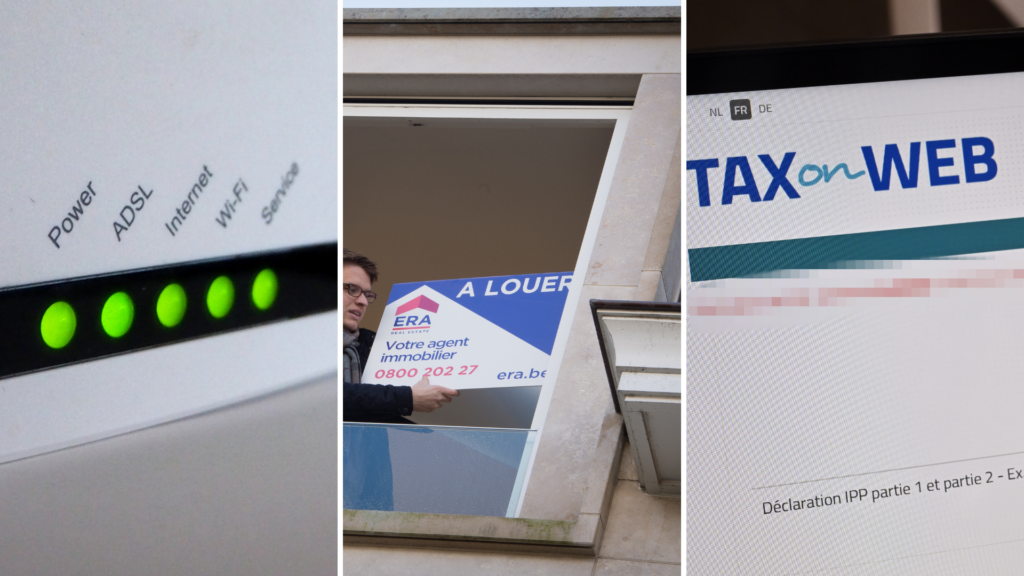The start of a new month in Belgium is synonymous with new rules being introduced or laws being adjusted. From alterations to leases impacting Brussels landlords and protection following network outages to controls at the Belgium-France border, find all the changes below.
Finances and consumers
Friday 1 November will see far-reaching changes come into force for landlords in Brussels, as the rental legislation regarding the 'explanatory annexe' included in all leases for rental properties will be altered.
From 1 November, landlords are obliged to mention the habitable surface area, reference rent and the amount of the last rent payment in their home ads. They can also no longer prohibit pet animals in the rental agreement. Short-term leases can now only be renewed once, and deposits must now be repaid within two months, with strict penalties for delay.
Additionally, only costs explicitly included in the contract can be passed on to tenants. If tenants contact their landlords with a request regarding the lease assignment and receive no response within 30 days, tacit consent of the landlord is assumed.

Credit: Lauren Walker / The Brussels Times
While not from 1 November, the deadline for declaration of taxes with specific income has been postponed again, this time to 14 November. The extension applies to those with specific income types, including income from self-employment, foreign professional income, profits, company director remuneration and spousal (legal cohabitant) helping fees. This marks the second postponement: the deadline was initially shifted from 16 to 28 October.
Also from Friday, people using the internet in Belgium are free to choose their modem, rather than having to buy it from their operator when taking out a subscription. The aim is to increase competition in the telecommunications market and enable users to choose a device which is more durable or offers additional features, such as security.
Ten European countries, including Germany, Italy and the Netherlands, also allow customers to choose their modem freely as part of a dynamic at the European Union level to push for freer user choice of terminal equipment in several directives and regulations. Television services will not be affected because it is unlikely that an alternative TV decoder will be developed due to low market demand.
In the same category, people who experience prolonged internet or telephone network outages for more than eight hours, during which they can no longer access the internet or make calls on their mobile phone or landline, can claim (small) compensation from telecom operators from Friday.
This measure applies to both fixed and mobile services and users of prepaid cards. Compensation starts at €1 after the first 16 hours of outage and increases each day unless it is the result of a force majeure event (for example, a natural disaster). The operator can also offer other forms of compensation, such as a free film, for example. A similar system is in place in the Netherlands, Germany, Italy and Spain.
Health
Access to medicines containing the active ingredients (pseudo-)ephedrine and fusidic acid will only be available with a doctor's prescription from 1 November, the Federal Agency for Medicines and Health Products (FAMHP) reported. These are Sinutab and Sinutab Forte (both from Johnson & Johnson), ParasinEG (EG) and Therafixx-Capitanasal (Haleon).

Credit: Belga
These tablets are frequently used for the symptomatic treatment of nasal congestion caused by the common cold, and the availability of the drug over the counter has led to an increase in its use. However, (pseudo-)ephedrine constricts blood vessels, which can lead to arrhythmias, heart attacks and strokes, albeit in rare cases. Some of these risks are unpredictable and not dose-related, the FAMHP warned.
Mobility
Borders are nominally open between countries in the Schengen area, but from 1 November, France is going to introduce controls at all its borders, including with Belgium. Such checks have been carried out at the French-Italian border since 2015, but from Friday, the measure will be extended to all of the country's borders. The checks will remain in place until 30 April 2025.
"In principle, the impact of the announced controls will be limited, as they would be selective controls that would not prevent free movement," Belgium's Foreign Affairs Ministry told The Brussels Times. "However, as no effective controls have yet been carried out, the actual impact is not yet known."
The Ministry will adjust its travel advice for France if necessary, should the checks be more disruptive than anticipated. France is not alone in re-introducing controls at its borders. Germany did so in September, while the Netherlands is planning to introduce border controls from the end of November.

